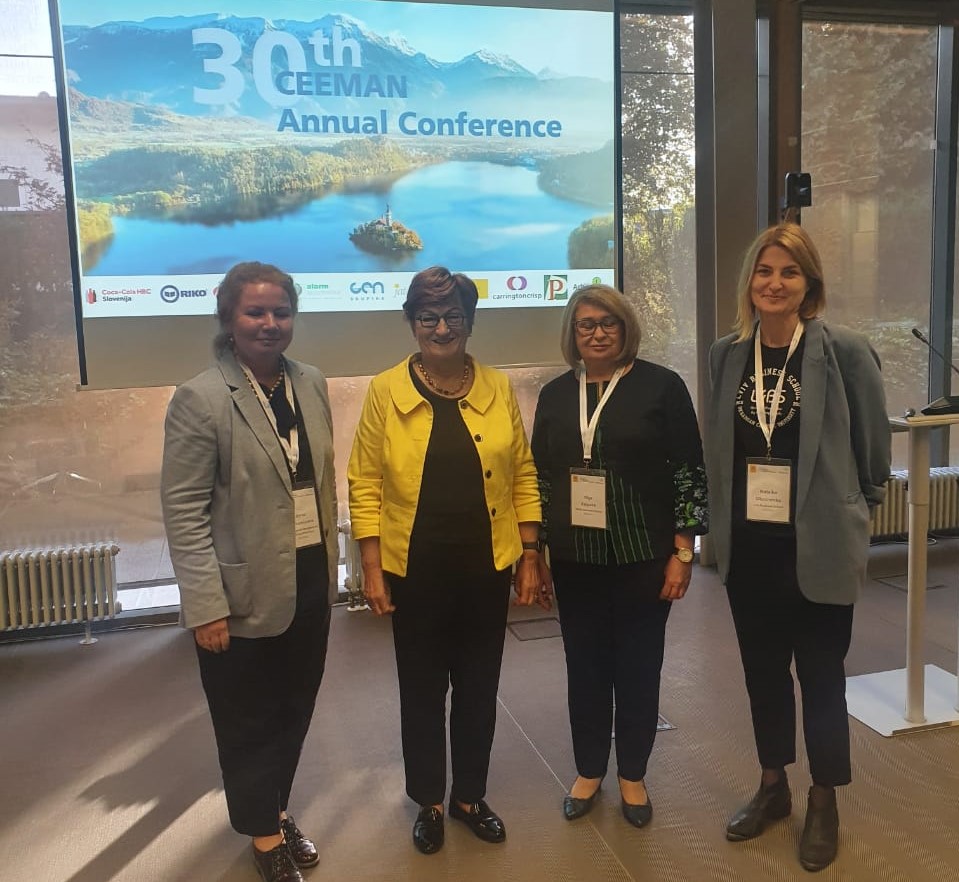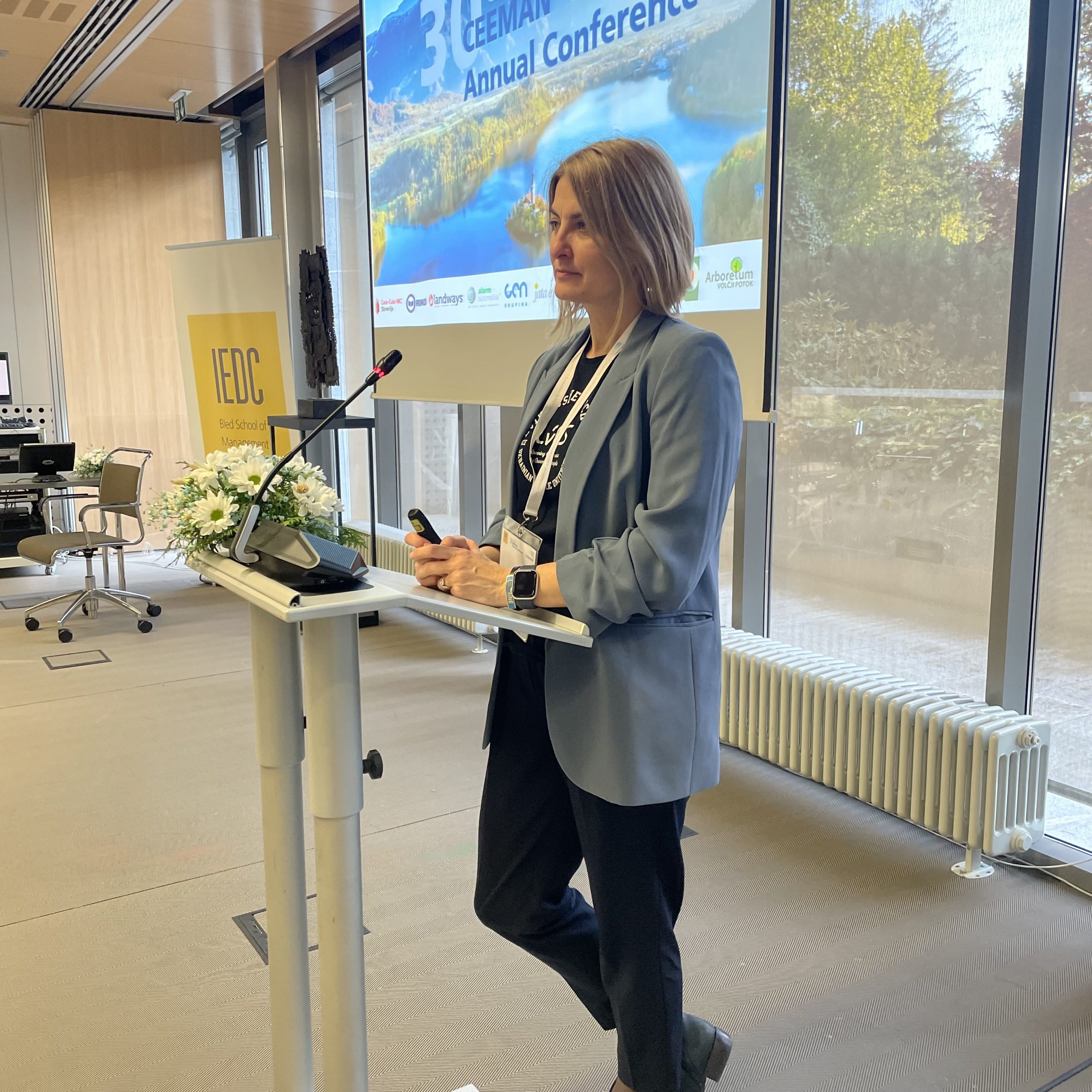UCU Business School attended the 30th Annual CEEMAN Conference at IEDC – Bled School of Management, Slovenia. More than 80 participants from 26 countries discussed how education can support leadership and innovation, which is needed to successfully navigate the disruption and volatility of today.
The global impact of business education on society and the role of values were also discussed. How should management education curricula and processes be changed to be fit for our times? There was also raised the topic of challenges faced by business schools during the crisis, particularly due to the war in Ukraine.

Nataliya Oboznenko, Academic Director at UCU Business School, participated in the conference. Together with Polish colleagues and global leaders of education, they tried to define the role of scholars in solving and preventing crises. The participants of the discussion shared their plans and actions that they implemented when the war came to Ukraine.
The participants of the discussion:
- Natalia Oboznenko, Academic Director at UCU Business School, Ukraine.
- Iryna Tykhomyrova, President of MIM-Kyiv Business School, Ukraine.
- Olga Karpova, Executive Director of Business School «KROK», Ukraine.
- Maciej Szymczak, Vice-Rector for Development and External Relations at Poznań University of Economics And Business, Poland.
- Edyta Lachowicz-Santos, Director of the Internationalisation Office at Uniwersytet Ekonomiczny w Katowicach, Poland.
- Mikołaj Pindelski, Professor at SGH Warsaw School of Economics, Poland.
- The panel was moderated by Anna Maria Gorska, Assistant Professor & Director of the Research Center for Women and Diversity in Organizations at Kozminski University, Poland.

Natalia says that the other participants of the conference were absolutely in solidarity with Ukraine because they understand that this war is a violation of any norms and human rights. The way Ukrainians accumulated their strengths and started working together for the future of the country is inspiring. However, we should constantly remind the international community that we cannot do it alone. We proved ourselves as a resilient nation, which is ready to talk about the future restoration of the state even in the midst of war. But in order to implement these plans, we really need the help of international partners.
And here we also need to clearly define what kind of help we require. We are very grateful to our partners who responded in time and provided an opportunity for our students to continue their studies. After all, an educated nation is a strong nation. We strongly believe that they will be able to apply all the acquired knowledge and skills in the near future for the recovery of Ukraine.

After our presentation and story about the situation in Ukraine, the conference participants shared their thoughts that as humanity, we still do not know how to confront or prevent similar situations in the future. However, in this war, we learned to be humane and help each other, and this is very important.
Today, we continue to work with our international partners and talk about what kind of help we need:
- Humanitarian and financial aid, because the war continues.
- Support for our students studying.
- Helping families of students who died during the war and filling educational funds in their honor.
- Supporting our teachers, so they can continue to learn, develop and work.
Unfortunately, even after seven months of the war in Ukraine, not everyone in Europe or the world knows and realizes the conditions in which we have to live and work now. So one of our essential tasks now is regular work with the international community, clear communication, and specific requests for help. We believe that, together with the whole world, we will be able to win this fight for humanity and truth.




















